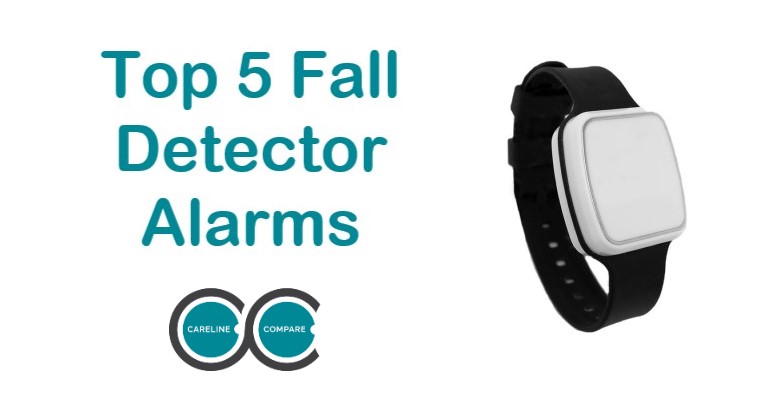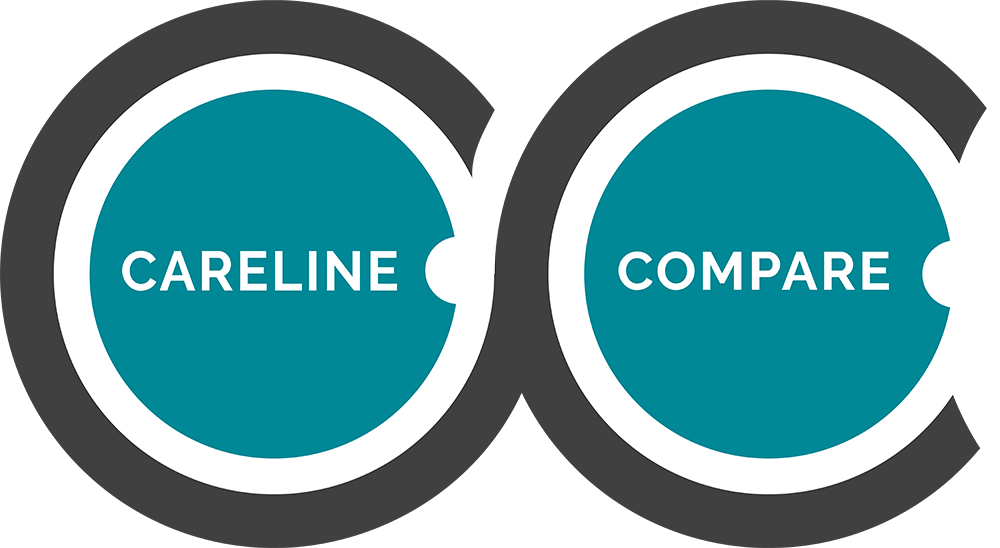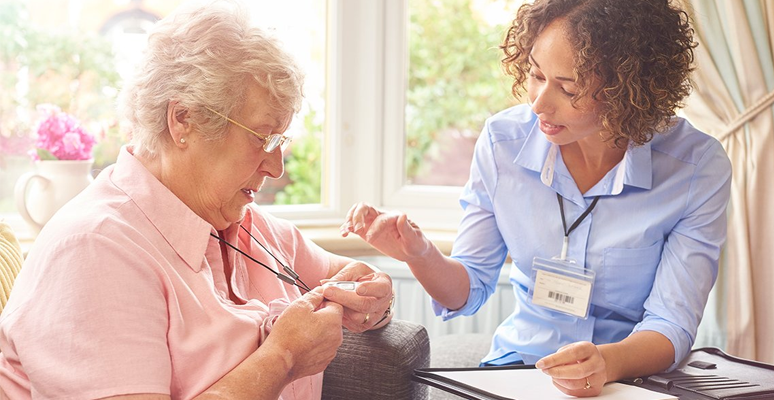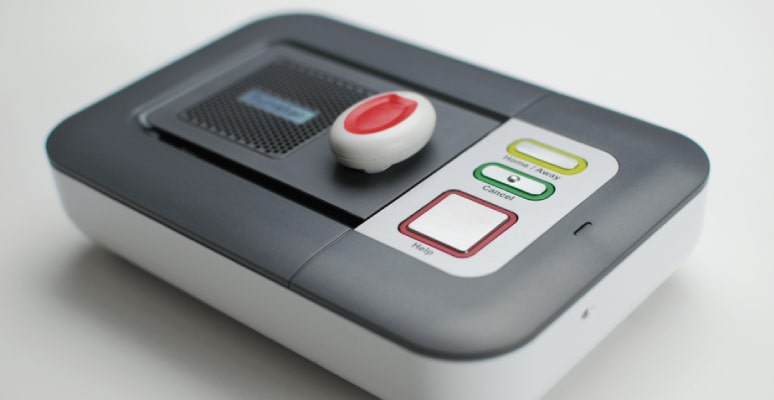Top 5 Fall Detector Alarms
on theCareline alarm technology has come on leaps and bounds in recent years. Traditionally, alarm users would have to press a button on their personal alarm or pendant if they wanted to call for help. However, modern technology is making it even easier for Careline alarm providers to keep their clients safe. Fall detector alarms are a perfect example.
What is a Fall Detector Alarm?
A fall detector usually contains a built-in height sensor (also known as an altimeter). The device will be programmed to the wearer’s height; if it detects a sudden drop in altitude, it will raise the alarm automatically and contact the alarm monitoring centre. This means there is no need for the user to press the alarm button. Therefore, fall detector alarms are perfect for people who may be prone to fainting or seizures, those who may not remember to press the button after a fall, or who have limited dexterity.
Let’s take a look at the best fall detector alarms for elderly people in the UK. I’ll compare price plans from the UK’s leading personal alarm providers to help you get the best deal possible. The technology of a fall detector is pretty advanced, so naturally these alarms are a little more expensive than standard Careline alarms. However, in my opinion, the extra peace of mind is well worth the extra cost. All prices given below do not take into account VAT, as many telecare alarm users are exempt.
1. Careline365 – Vibby Fall Detector
Annual plan: £184 per year (plus £40 set-up fee)
The Vibby Fall Detector is made by leading UK manufacturers Tunstall, making it compatible with a wide range of Tunstall alarm systems. It’s my number one fall detector alarm for several reasons:
Firstly, it has all the standard features you would expect in a fall alarm: automatic fall detection, a button to raise the alarm manually, and waterproof certification. There are a few extra features that really make it stand out. Most careline alarms rely on small LED lights to confirm that the alarm has been activated. The Vibby makes use of these LEDs too, but the pendant also vibrates upon a successful activation. This makes it ideal for anyone who is visually impaired and may struggle to see a tiny light flashing. What’s more, cancelling a false alarm is easy with Tunstall’s Vibby Fall Detector; the user simply needs to stand up within 20 seconds or cover the face of the device with their hand.
Careline365 provides the Vibby alongside the Lifeline Vi Alarm unit. I chose Careline365 as their annual plan offers the best value I could find – coming in at around 50p per day. The plan comes with a 24/7 monitoring service and a neck wearing attachment.
More info: go to the Careline365 website.
2. Lifeline24 – Vibby Fall Detector
Annual plan: £189 per year (plus £35 set-up fee)
The Vibby makes another appearance in this Top 5 list, this time from Norwich-based telecare providers Lifeline24. It’s ever so slightly pricier than Careline365, but the set-up fee is cheaper by the exact same amount, so you’ll end up with an initial payment of £224 either way.
Lifeline24 is a member of the Telecare Services Authority (TSA). This accreditation means that Lifeline24 complies with the TSA’s high standards of service such as acting with integrity and handling complaints promptly and courteously.
With this Fall Detector alarm plan, you’ll receive the Vibby Fall Detector with a wrist strap, the Lifeline Vi Alarm unit, and 24/7 monitoring for 12 months. Lifeline24 also offers a wide range of personal alarm accessories such as alarm-linked smoke detectors.
More info: go to the Lifeline24 website.
3. Telecare24 – Vibby Fall Detector
Annual Plan: £190 per year (plus £45 set-up fee)
Another appearance for Tunstall’s Vibby Fall Detector – but in this case, it comes with the Novo Careline Alarm base unit. There aren’t many significant differences in the two base units we’ve seen so far. They both connect to the user’s landline socket in order to call the monitoring team. Telecare24 promises to answer alarm calls in under 9 seconds and is recommended by televisions Dr Hilary Jones, which may appeal to some potential shoppers.
The fall alarm plan from Telecare24 is a little pricier than the ones we have looked at so far, with a higher annual fee and a higher set-up fee than both Careline365 and Lifeline24. They’ve also received TSA accreditation. What may clinch it for some is the ability to add a second fall detector (either as a spare or for someone else living at the same address) for £95, slightly cheaper than the other careline alarm providers at number 1 and 2 on this list. You’ll receive the fall detector pendant and your choice of either a wristband or a neck cord, as well as the base unit and 24-hour monitoring service.
More info: go to the Telecare24 website.
4. SureSafe – iVi Fall Detector
Monthly Plan: £14.99 per month (plus £124.95 initial payment)
SureSafe’s Fall Alert alarm comes in at number four, keeping the Vibby from a clean sweep of this Top 5 list. The iVi Fall Detector, also manufactured by Tunstall, is a similarly intelligent device. Naturally, it contains a sensor that can detect when the wearer takes a fall, as well as a help button for raising the alarm manually.
Instead of vibrating to confirm that the alarm has been activated, the iVi will play an ascending tone, alongside the traditional LED flashing lights. It also features a second button, which users can press to cancel a false alarm. The cancel button is much smaller than the main button to minimise accidental cancellation. Like the Vibby, the iVi Fall Detector is also certified water resistant.
I’ve included it here as it’s one of the only monthly plans I’ve come across. While you’ll get better value by paying annually, some people may simply prefer to pay in smaller instalments. With this fall alarm plan, you’ll receive the fall detector pendant, SureSafe alarm base unit, neck cord attachment. You can select 24-hour monitoring during the ordering process.
More info: go to the SureSafe website.
5. Carelink24 – Vibby Fall Detector
Weekly Plan: £4.50 per week (plus £82.70 initial payment)
And we’re back with the Vibby Fall Detector once again. By now you know the features and benefits of this particular alarm, so I won’t bore you with the details again. However, what’s unique about Carelink24 as a telecare alarm provider is the weekly plan they offer. This gives you much greater flexibility than paying annually for a 12 month contract each time.
You’ll be billed quarterly with the ability to cancel anytime. If you’re looking for the cheapest initial payment on your fall detector alarm, Carelink24 is the place to go.
With this personal alarm plan, you’ll receive the Vibby Fall Detector with a wrist strap, the Lifeline Vi alarm base unit. You’ll also receive a 24/7 monitoring service.
More info: go to the Carelink24 website.
Compare Careline Alarm Providers
And there you have it – my top five fall detector alarms. Click here to compare more careline alarms and providers.




